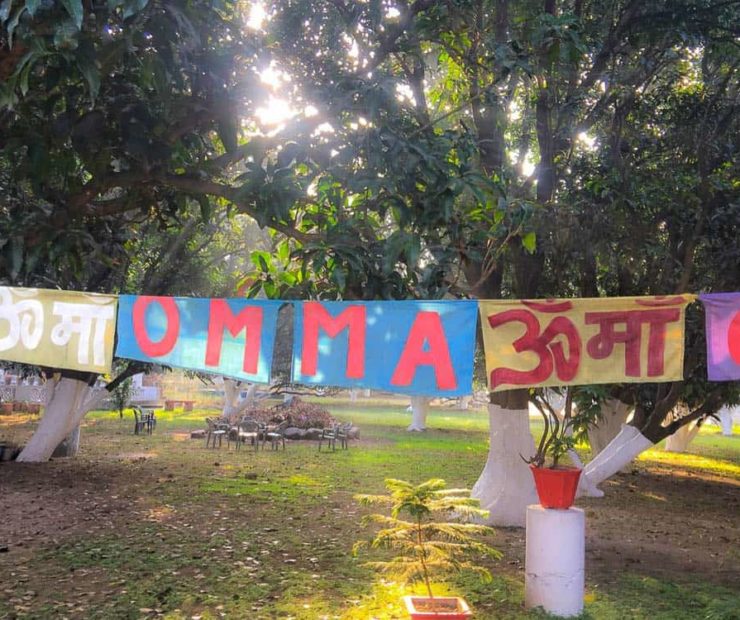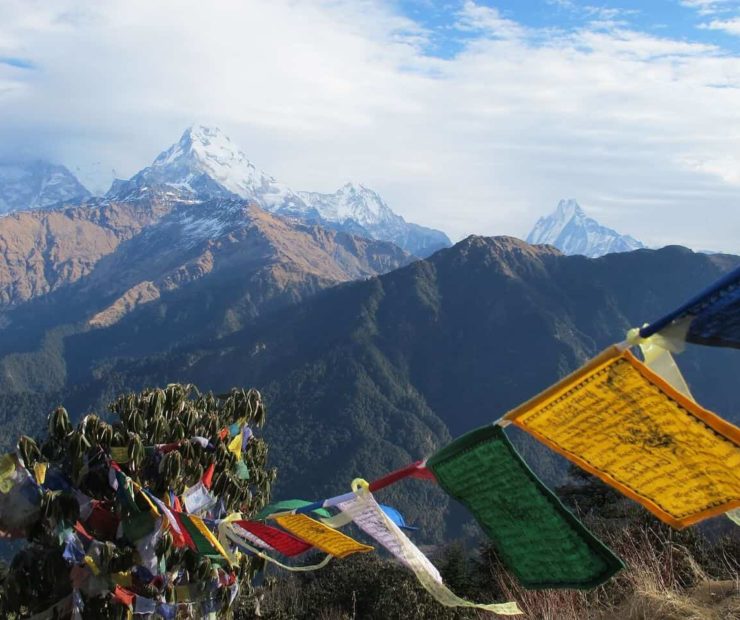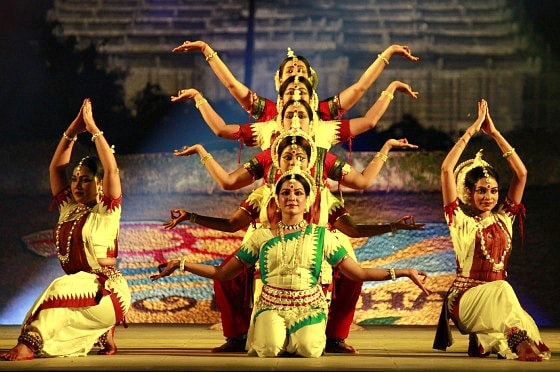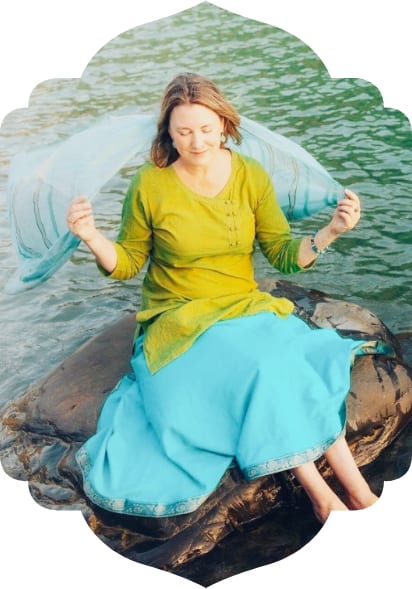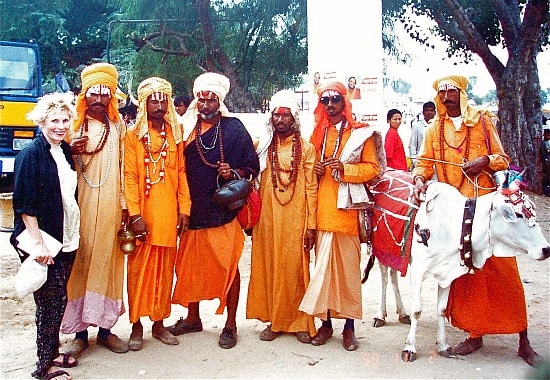
An interview with Sylvia Fraser
Author of the transformative travel classic, The Rope in the Water
In 2005, as I was getting ready to go to India for the first time, on my six-month “trip of a lifetime,” my friend Chrissy gave me a copy of The Rope in the Water. As I read about Toronto author Sylvia Fraser’s pilgrimage to India, I was struck by the many similarities between us; and completely flabbergasted to discover that we share the same birthday (March 8 – International Woman’s Day).
I loved the book and decided I had to meet Sylvia Fraser; that somehow my destiny demanded it. Well, it took me five years to finally connect with her and I am happy to report that we are now friends. I interviewed Sylvia in February 2011 about her many transformative travel experiences and her reality-defying “rope in the water” story (see below and find out how a non-existent rope saved her life when she was being carried out to sea by a riptide, off the coast of Kerala in South India). Here are the highlights of our interview.
Mariellen Ward: What is travel to you, and why do you prefer being a seeker and going on pilgrimage?
Sylvia Fraser: Travel is something I love to do, it’s a need, not a luxury. If I’m not happy, planning a trip is absolutely the best.
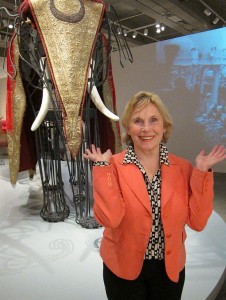
A pilgrim is a seeker … someone who seeks something larger than the life one is living. You have to go on your own. If you go with people that you know, there tends to be a desire to recreate what you left behind, maybe a little bit better. If you’re going to find your own kind, or better your status, that’s a different kind of travel than what I’m talking about; it’s a vacation.
There’s ways of opening yourself, but retaining a sense of who you are, and that’s what I think is the most exciting kind of travel. Could one include seeking and finding a mate – like Eat, Pray, Love? I suppose so – whatever opens up your world. It depends on what stage you’re at in your life.
In travel books, women are always pulling that one. I notice a lot of travel books by women are like that, “My thousand days of love in Venice.” With men it’s all about derring do and extreme adventure.
MW: What attitude do you recommend seekers take?
SF: I think it’s a matter of going with an open mind. Being willing to put aside your own beliefs (though not values) and see what other people, what other cultures have to offer. Then decide what works for you and what doesn’t work for you. The more choices you allow yourself in terms of who you want to be and what you want to do, the more you will lead a fulfilled life.
My advice … try and know what stage you are at in your life. See what countries, what interests, draw you. There are many keys, follow your greatest interest. Do your best to understand what draws you. It shouldn’t be because someone writes a bestseller, like Eat, Pray, Love … it doesn’t mean you should go and eat, pray and love. And it’s all right to change your mind enroute.
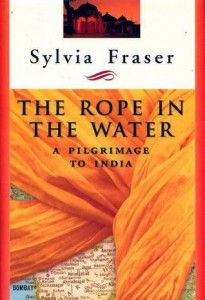
SF: People who have experienced trauma in their life, and especially people who have experienced it as a child, tend to have to look a little bit deeper, and higher, for purpose in life. The ordinary, usual things may be quite delightful … but wounds that make one suffer, make one look deeper. In my case, it was incest, sexual abuse by my father, and though I blocked it out of my conscious mind, it was a motivating force all my life. The incident that pushes you down, can give you wings to fly higher – and that’s when you become a quester.
The question that intrigues me most – and I’m always looking for the answer – is what is reality? I really want to know, in the deepest sense. It goes well beyond physical reality… then we get into the big “M,” mystery. And the thing about mystery is that you can’t define it.
MW: What did you learn from finding the rope in the water, when you were in India?
SF: One thing I’ve learned through science and philosophy, is that the material world that we in the west believe in so powerfully is fragile. This became emphasized to me when I was in India, most specifically when I was being carried out to sea by a riptide and reached down and found a rope in the water and pulled myself ashore. That’s a very condensed version of the story I told in my book, but that’s what it boils down to. That rope felt extremely real to me, and to everyone watching me being swept away. How I came to be here now only was because I found that rope in the water.
That was a very dramatic demonstration to me of what I already believed in … the physical world is not as real as we pretend it to be. Quantum physicists know this, they’ve known it for 100 years. It’s very slow to seep into our consciousness in the west.
The description of the universe given by the seers of Asia is that of a non-material universe in which all material is illusion – which is essentially the one now on the drawing board of quantum physicists.
The experience of the rope in the water was so overwhelming, at first I denied that it happened. I’m not sure it could’ve happened anywhere else. I definitely think that things like that are much more likely to happen in an environment in which people believe they can happen.
We should pay a lot more attention to our emotions, relationships, the things that are most valuable to us, that are not physical, that aren’t something you can buy and consume – that come about through caring, compassion and through living one’s life as well as one can in a meaningful way.
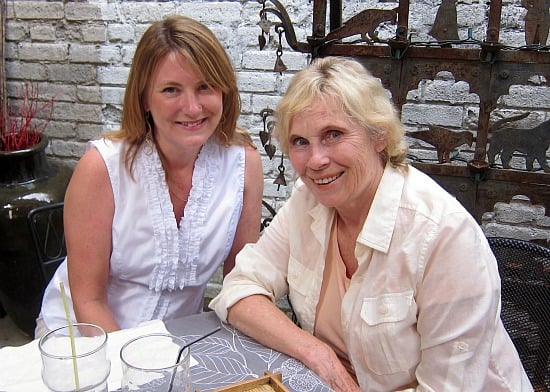
MW: What is it about India that makes it special?
SF: There’s certain countries where I instinctively feel at home, and India’s one of them; I can’t really explain why.
India is one of the few countries in the world that has an unbroken spiritual tradition going back 4,000 or 5,000 years. India gives travelers like us another gift, and that is English – which is spoken all over the country. And India is India. Unlike other countries in the “mysterious East,” that are following the American model, India had had a taste of Europe (i.e. Britain), absorbed it and remained India. Even if you just looked at a crowd, you saw people, especially women, dressed as they always were. It’s a large complex culture that has kept in touch with itself.
When I went to India, I decided to adopt Indian philosophy – which is that anything that happened to me, happened for the purpose of teaching me a lesson. I’m not sure how much I believed in that when I started out, but I was totally amazed how well that worked. One thing led to another and things that didn’t look like they would add up, eventually did. Also, I noticed karma – if I did something nice, something nice would happen. If I lost my temper and got crabby, that would reverberate in some unpleasant way.
India is a jewel box of all that. Many drawers, many cabinets. And the people are wonderful.
MW: What about the return home?
SF: I’m always happy to come home. I’m not escaping anything; I’m enlarging. I like my life here in Toronto. I have even been known to cut a trip shorter because I just want to come home. I always tell myself, I can go back. Maybe it’s about having faith in the future.
But if a country really draws you and you don’t want to leave, maybe you should go and live there … maybe you’re not finished …
If you enjoyed this post, you can….
Get updates and read additional stories on the Breathedreamgo Facebook page.
Buy Song of India, a collection of 10 feature stories about my travels in India.
Subscribe to the free — and inspiring! — e-newsletter, Travel That Changes You.


